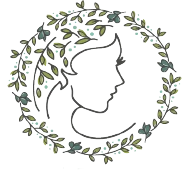The COVID-19 pandemic has caused all of us to rethink many of the choices we make in our daily lives. And it's brought attention to the things we don't really think about – like how much toilet paper we use.
Before the pandemic, many of us avoided using toxic household products in our homes, looking for chemical-free solutions instead. However, with consumers raiding the shelves for Lysol and bleach, and so many different messages out there about how to stay safe, you may begin to wonder if chemical-free cleaning products are the best choice right now.
You probably have questions like:
- If I use my chemical-free products, am I putting my household in harm's way?
- Do I have to choose between polluting my environment and killing the virus?
- Although chemical disinfectants work on coronavirus, is it worth the risk of my long-term health?
These are very valid questions – and if you have them, you aren't alone.
There are a few ways to approach this. First, the cleaning recommendations by the CDC state that they are for "cleaning and disinfection of households where persons under investigation (PUI) or those with confirmed COVID-19 reside or may be in self- isolation." If no one in your household has the virus, then you may not have to take the same level of safety precautions as those described here. Following the CDC guidelines to stay at home, practice social distancing, avoid touching your face, and keep high touch surfaces clean do work to minimize your risk.
How do you keep your surfaces clean?
Let's talk first about the differences between cleaning and disinfecting.
Soap and other natural cleaners remove germs; however, they don't kill them.
Disinfectants, on the other hand, can kill germs, but they don't clean surfaces. Many disinfectants include harsh chemicals such as bleach. Unfortunately, these chemicals can cause more harm than good. In fact, the overuse of products like bleach can lead to other respiratory problems.
Toxic disinfectants and other chemical household products impact your air quality. Most U.S. homes have HVAC systems that recirculate indoor air rather than pulling in fresh air from the outside. So when you use these chemical cleaners, their pollutants also recirculate in your home.
In fact, the EPA says that "the air within homes and other buildings can be more seriously polluted than the outdoor air in even the largest and most industrialized cities."
So yes, you may kill any potential coronavirus cells with them, but you're also polluting your air. And right now many of us are spending most, if not all, of our time in our homes. So are these disinfectants really the right choice?
Veles is an Alternative that Turns Food Waste Into Chemical-Free Cleaning
Veles is a new surface cleaner made from water and food waste collected at corporate cafeterias around Manhattan. Yes, that's right - food waste. You've heard the old saying that one person's trash is another one's treasure, right? Well, Veles takes this concept to a new, ingenious, and sustainable level.
Instead of commercial waste haulers driving hours to dump food from these New York cafeterias into landfills and compost facilities, they bring it to Veles. And Veles then transforms it by isolating its elements to create a combination of chemicals and ingredients that are effective for cleaning.
The ingredients derived from the food waste used in Veles all-purpose cleaner are water, acetic acid, lactic acid, and alcohol. They make up 97% of the Veles solution. The other 3% is an all-natural fragrance derived from essential oils and a plant-derived biodegradable fragrance stabilizer called decyl glucoside.
Veles is a chemical-free all-purpose cleaner that doesn't pollute your home or the environment. And you can use it to clean all types of surfaces like ceramics, glass, fiberglass, chrome, stainless steel, metal, and plastic/acrylic.
Now, Veles doesn't claim to kill microbes (it's not a disinfectant), but it is proven to remove germs, grease, and dirt off different surfaces. Veles ingredients like lactic acid and alcohol, are used in many of the cleaning products recommended by the EPA.
Veles was lab-tested with some of the worst surface contaminants and found 99% effective on cleaning Hucker's soil off of multiple types of surfaces. If you're not familiar with Hucker's soil, it's considered a worst-case scenario mess in lab testing. Its ingredients include things like printer ink, evaporated milk, salted butter, creamy peanut butter, boiled linseed oil, ground wheat flour, and egg yolk – ick!
Clean your home without polluting it.
You can use chemical-free cleaners like Veles during a pandemic, or any other time to remove germs from your surfaces and clean your home without polluting it. But that still leaves the question – is it effective to use right now?
According to the Harvard Medical Journal, if surfaces are dirty, first clean them with a detergent and water, then disinfect. So keeping your surfaces clean is essential, but this doesn't mean that you have to clean them with toxic chemicals.
You can use natural products such as Veles, which still contain ingredients like alcohol and lactic acid, to clean your home. Veles is proven to remove the worst of the worst surface contaminants. And, unlike those toxic commercial brands, it doesn't pollute your home or the environment in the process.
Yes, we must make smart choices to keep ourselves and our families healthy. But cleaning products do make a difference in the air quality of our homes. So what you choose now could impact your health later.
With Veles, you don't have to choose between cleaning your home and polluting it. Plus, since its sustainable and resource negative, it's also better for the environment. And if there's one thing we've learned in light of the pandemic, it's that the choices we make do impact others.



